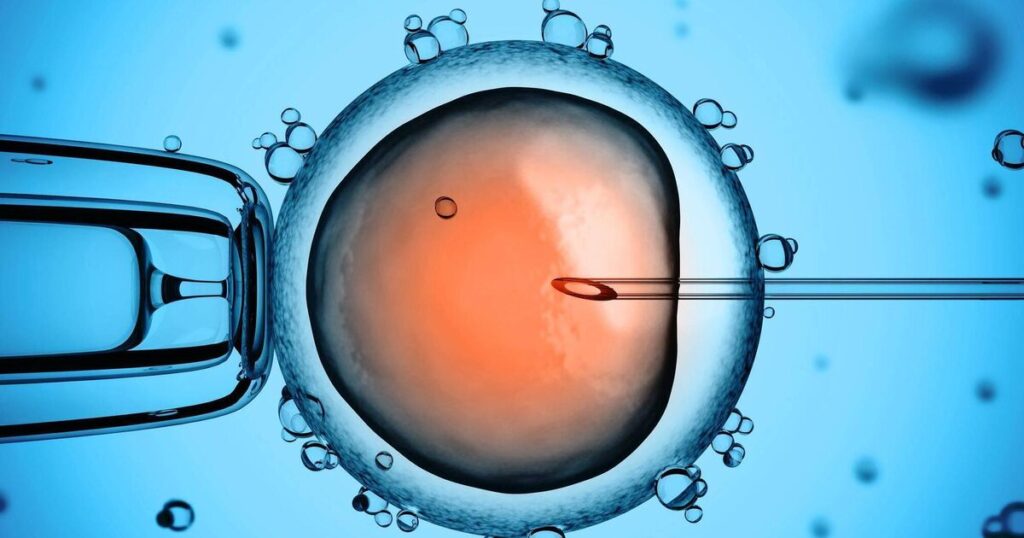The National Women’s Health Survey — commissioned by the and carried out by market researchers Ipsos B&A — has revealed that one in five women who have had a child or are currently pregnant experienced fertility issues.
Among these women, four in five sought medical advice regarding their or their partner’s infertility, and 52% underwent fertility treatments like IVF.
Approximately half of individuals interested in starting a family express worry or concern about their own or their partner’s fertility.
Of those concerned, around one-fifth have already taken steps to assess their fertility, and two in three women planning to start a family would consider fertility treatments like IVF if necessary.
John Waterstone, medical director at Waterstone Clinic, expresses surprise at the statistic that one in five women have proactively taken steps to check their fertility: “I’m surprised, because these women haven’t yet started their journey. They’re just aware they might have difficulties. I’m quite encouraged that 20% have taken steps to investigate their fertility.”
He contrasts this with the lack of proactivity he observes in men: “We rarely see men who aren’t currently trying for a baby wanting to check out their fertility. Once in a blue moon, a man with no children will ask: ‘Can I have a sperm analysis test just to see if I’m OK?’”
Waterstone notes the increasing awareness of fertility and related challenges among women: “Because of social media, these matters are discussed more than they used to be.”
However, considering that only one in three survey respondents self-identify as ‘well-informed’ about fertility, Waterstone confirms a rise in the number of women aged 40 and over presenting to his clinic for the first time without having had children.
“The percentage of women who come for a first visit when they’re 40 or older is far higher now than it was 10 years ago,” he says.
“And as every year passes, we’re seeing more of these women — it’s distinctly worrying. Sometimes it works — with treatment, they manage to have a baby. Other times it doesn’t, and sometimes donor eggs are the only way.
“The fundamental thing women need to know is they have a limited window of opportunity for having children compared to men. Men can dilly dally — they can still have children when they’re 40 or 60. Once women get into their late 30s and 40s, their eggs are ageing. Opportunity for having children drops away sharply.”
One in three survey respondents express consideration for egg freezing, while one-fifth disagree.
Waterstone Clinic is experiencing “significant demand” for egg freezing, with Waterstone adding: “It now comprises something like 20% of all the treatments we do.”
“That’s the million dollar question,” says Waterstone, explaining that although technological advances have meant more reproducible success in egg freezing in recent years, it is still a difficult procedure to do successfully: “It’s technically challenging. You have to be very meticulous.”
He explains the difficulty clinics face in accurately gauging success rates due to the time lapse between freezing and eventual thawing of eggs: “Though we freeze hundreds of eggs every year, only a handful of women have thawed them out — probably less than 10. And more than half of those women [whose eggs we thawed out] are pregnant, or have had a baby.”
Caitríona Fitzpatrick, National Infertility Support and Information Group, chairperson, indicates heightened awareness of available options for those experiencing fertility challenges: “We get a really broad mix contacting us — people considering IVF, right up to those looking at donor conception and surrogacy, the full gamut, They generally have done some research themselves — they come to us because they don’t know anyone who has gone through it. We offer peer-to-peer support — speaking to someone who has already gone through a fertility journey.”
Fitzpatrick highlights a deficiency in fertility education in Ireland: “We’re very good here on educating about contraception, which we weren’t before. We don’t really educate about fertility — despite at a very young age a lot of people knowing they’d someday like to be a parent.”
She notes that many contacting the group are unaware of the age at which female fertility begins to decline, the time it can take to conceive, or steps they and their partners can take to improve their chances: “A lot of people say if they’d known fertility starts to decline at 35, they’d have started earlier, or been prepared for a longer journey.”
Fitzpatrick also observes that people still lack openness in discussing fertility. “We talk openly about having a baby but when issues come up with fertility — [despite] the amazing help available, the high number of successes every year — a huge number of people getting fertility treatment only tell one or two people.”
While 82% expressed a positive view of using fertility treatments to start a family, Fitzpatrick believes the survey findings suggest a persistent social stigma surrounding fertility: “There’s still a stigma about all of it.”
Ipsos B&A designed and implemented a research project for the involving a nationally representative sample of n=1,078 women over the age of 16 years.
The study was undertaken online with fieldwork conducted between April 30 and May 15, 2025.
The sample was quota controlled by age, socio-economic class, region and area of residence to reflect the known profile of women in Ireland based on the census of population and industry agreed guidelines.
Ipsos B&A has strict quality control measures in place to ensure robust and reliable findings; results based on the full sample carry a margin of error of +/-2.8%.
In other words, if the research was repeated identically results would be expected to lie within this range on 19 occasions out of 20.
A variety of aspects were assessed in relation to women’s health including fertility, birth, menopause, mental health, health behaviour, and alcohol consumption.


